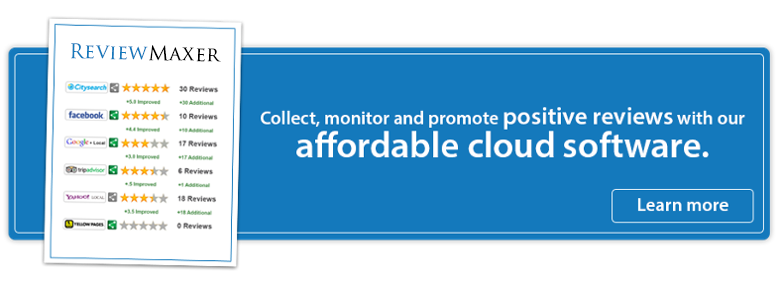.jpg?width=398&height=252&name=482100585_(2).jpg)
It may be your competitors - learn how to spot the impostors.
If a search of your company’s name finds mostly negative reviews, your first thought might be, “Wow, my customers are really displeased, so I have to change.” However, you may want to take a closer look. Sometimes, it’s not dissatisfied customers at all who are writing negative reviews – it might be your competition.
The issue of fake reviews posted by competitors was first widely reported in the hotel industry, where some travel and hotel reviews were found to be less than reliable. But this phenomenon doesn’t affect only the hospitality industry – it could also be a problem in your industry. Additionally, review sites are not the only online trouble spots you should monitor, as fake comments can also crop up on your social media (http://www.axiapr.com/what-we-do/social-network) pages.
Studies have shown that more than 70 percent of consumers consult online reviews before deciding where to spend their dollars, and negative comments about your company may cause them to take their business to your competition. That means it’s not just your reputation (http://www.axiapr.com/what-we-do/reputationrestoration) at stake – your profitability and success can suffer, too. It’s not always easy to differentiate between reviews from genuine customers and those that are phony, so here are some telltale signs that may help you spot the fakes.
Finding a similarly worded review on the site of a competitor is one clue. Chances are your company’s adversary will try to drag down all serious competition, not just you, so it may also post negative reviews about others in your field. You might also notice identical or related screen names or hash tags in each review. It could be worth making note of which competitors weren’t hit.
Negative reviews that lack specifics are another tip-off. For example, a fake review might say, “This was the worst product ever. I will never purchase from this company again,” without giving a reason for all that dissatisfaction. A real one would look more like this: “I was unhappy with this product. The instructions were confusing, it was difficult to assemble and I was not able to reach a customer service rep for assistance.”
Style of writing can be a dead giveaway. Even the most technologically advanced consumers are still people, and as such, they write the way most normal people do. If the review uses terms that could have come from a product manual, it might be fake. For instance, a customer who takes the time to mention things like the model number or uses mechanical terms in a review should send up a red flag. A comparison of reviews should help you distinguish key differences.
For truly foul or objectionable reviews, you may want to track down the IP address of the person who is posting the comments; it could lead to the address of a competitor.
You can’t control the actions of others. However, you do have control over your own behavior and the way you respond to negative attacks.
Dealing with negative reviews quickly is the best way to prevent permanent damage to your company name and brand (http://www.axiapr.com/what-we-do/onoma). At Axia, we will use our arsenal of PR strategies to help you counteract fake negative reviews. If you are fighting against harmful, negative feedback (from a competitor or the real thing), contact us today before it becomes a crisis and does true harm to your company.

Lisa Goldsberry is a writer for Axia Public Relations with more than 15 years of public relations experience. She specializes in business, higher education and technology PR. Connect with Axia Public Relations on Twitter at www.twitter.com/axiapr.
Photo credit: Think Stock Photos
Topics: public relations, online review management


Comment on This Article